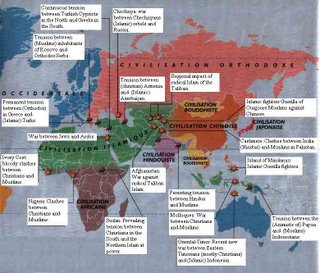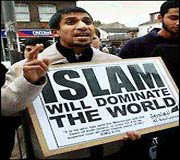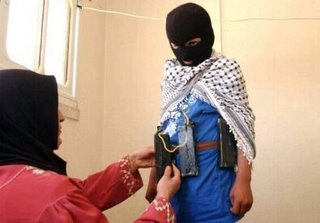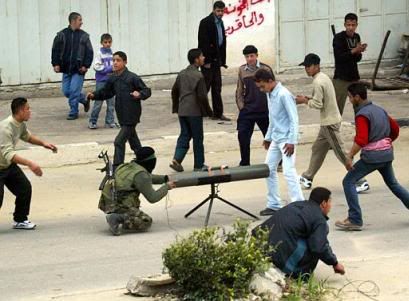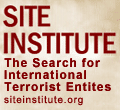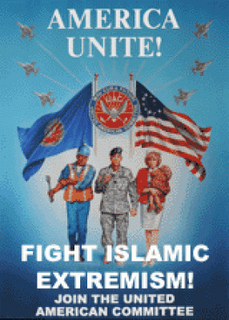Saturday, July 26, 2008
Arab racism & Islamic Jihad in Sudan - Locking up Sudan’s Al-Bashir could let some light
Arab racism & Islamic Jihad in Sudan - Locking up Sudan’s Al-Bashir could let some light
nationmedia.com ^
AFRICA INSIGHT - Locking up Sudan’s Al-Bashir could let in some light into war-torn Darfur
Story by OKELLO OCULI Publication Date: 7/25/2008
The charges brought by the International Criminal Court against Sudan President Hassan al Bashir present a crack for sunlight to shine through the dark clouds of official terrorism perpetrated for over two decades by the Khartoum regime against helpless peasants, writes OKELLO OCULI
“The oil found in Darfur will turn into a curse for the region, bringing about the loss of many lives, hand in hand with large-scale land alienation and devastation,” so wrote Prof Fouad Ibrahim of Bayreuth University, Germany.

Prof Ibrahim’s pessimistic prediction -- published in the Winter 2005-Spring 2006 edition of the Global Development Studies -- was rooted in several emerging themes in the governing of Sudan.
At the top of these themes is a historically-rooted division of Sudan’s population along racial lines and unequal access to political, administrative, cultural and economic resources with the lighter skinned Arabs in the Omdurman/Khartoum axis in the Nile valley at the top and the “black African peasants” (such as the million Furs, the Berti, Masalit and Zaghawa who number 350,000 each and inhabit Darfur, at the bottom of the social ladder. (Darfur means the land of the Fur).
According to Ibrahim, the “black African peasants” of Darfur have, since Sudan’s conquest by the British in 1919 and rule by successive post-independence governments from 1956, suffered from sustained neglect and deliberate underdevelopment by the rulers.
Inhabiting the savannah belt of the region, their land enjoys higher rainfall which camel-keeping and livestock-rearing Arab ethnic groups in the desert northern Darfur migrated to, thereby evolving traditions of conflict typical elsewhere in Africa between pastoralists and settled farmers.
A significant element of this tradition was the existence of horse-riding warriors who tracked, also on-horse-back-rustlers, and fought them to win back the animals vital to nomadic peoples. These groups would later be adopted by both Sadiq al Mahdi’s regime (1985-1989) and Hassan al Bashir and supplied with modern weapons and constant supplies of ammunition to wage war against Darfur’s ethnic groups, and others elsewhere.
Al Bashir launched his own version of terrorism in 1989 when his government promulgated the ‘Popular Defence Forces Law’ which legalised paramilitary training to militias to execute a “jihad against Christian influence in the South”.
This was a clever way of using religious fundamentalism to reverse a growing consensus among Sudan’s political parties to end the civil war that had raged intermittently since independence in 1956 against Southern Sudan.
It was a strategy which the National Islamic Front, Al Bashir’s allies, would use to snatch political influence from the Umma Party, the National Democratic Party, the Communist Party and political parties in Southern Sudan whose activism had made Sudan’s political culture vibrant and patriotic.
Under this umbrella fundamentalist Islamic revivalism, the legitimate claims of the peoples of Darfur for an end to their economic backwardness and marginalisation would be subverted through the “jihad”.
Prof Ibrahim’s second theme was a growing tradition of violence to drive away populations from areas that were known to contain oil deposits. This vicious measure was first used by the American oil company, Chevron. In 1976 Chevron recruited Arab tribes to drive out the Dinka and Nuer populations out of villages in oil-rich zones. By 2001, a report by a United States Committee for Refugees stated that from February 1992 to December 1993, the government of Sudan had adopted Chevron’s terrorism with the result that “across the oil-rich regions of Sudan, the government is clearing the land of civilians”.
A Swedish oil company, Lundin Oil, and a Canadian oil concern, Talisman Energy, were using “scorched earth” tactics, arming militias and “engineering famine” against peoples “around oil fields”.
In order to “guarantee the safety of the oil company’s operations” and clear the area for a road to oil concessions, these oil companies gladly embraced and used air facilities they had built, for military helicopters to land troops and rain terror on local populations.
Several official investigations noted this sad situation. As Al Bashir’s regime grew increasingly tied to Sudan’s growing oil economy, a Special Rapporteur of the Commission on Human Rights of the UN General Assembly said, in a report issued on September 7, 2001, that Al Bashir’s militias “do not only target rebel camps or armed individuals, but also civilians, in a very intensive manner. Usually food crops are destroyed, men are killed and women and children are abducted”.
When, in self-defence, the terrorised tribes of Darfur raised liberation fighters, they met a Sudanese regime under Al Bashir that, since assuming power in 1989, was accustomed to using maximum violence against settled populations to satisfy its leaders’ hunger for petrol dollars.
Meanwhile a cynical paradox had also grown over the years. American, Canadian and European Union governments were silent on the active and genocidal role played by their oil companies against defenceless populations in Sudan whose only crime was that their ancestors had owned land that held vast oil deposits under their feet.
The West started blaming Al Bashir when it became increasingly clear to it that SPLM /SPLA leader John Garang, in alliance with leaders of opposition political parties in Northern Sudan, had mobilised the grievances and anger of tortured and victimised populations into a new growing revolutionary Sudanese nationalism that had began to take arms against the sadistic impunity of the small elite that coalesced around Al Bashir’s military machine.
But, opting to land safely into the friendship of the leaders of the new revolution, the West began to support the groups fighting to end the terrorism against Darfurians and elsewhere. The vigorous entry by India and China into Sudan’s oil belt also made them develop convulsive fits of panic. An empty rhetorical South-South solidarity among China, India and Sudan was tolerable and even entertaining. But giving China and India access to oil concessions was clearly diabolical. Al Bashir was urgently accused of committing “genocide” in Darfur.
Sudan’s tragedy has been the pathological cruelties of successive leaders (from Jaffar al Nimeiry, Sadiq al Mahdi to Al Bashir), against citizens of their country. Sudanese intellectuals, like Deng and Prof Ibrahim, have seen Arab racism as the curse of Sudan. This terrible virus is claimed to be most virulent in leaders with varying degrees of dark skin and West-African tribal marks—the Janjaweed.
Commentators on genocide in Rwanda have noted that Hutus with Tutsi mothers were often the most brutal in killing Tutsis. They were apparently anxious to prove the authenticity of their Hutu ethnic nationalism. This situation remains a critical challenge to those working on building national unity in Sudan.
The vast crowds that turned up to welcome John Garang as a hero into Khartoum (after the signing of the peace according ending the civil war in Southern Sudan in 2005), suggests, however, that the quest for justice, freedom and dignity was a more powerful force than shades of skin colour in Sudan.
The positive value of the charge brought by the International Court of Justice in The Hague against Al Bashir is that it has opened a crack for sunlight to shine through the dark clouds of Al Bashir’s official terrorism against Sudan’s helpless peasants for over two decades.
Even if the light does not owe itself to a newly found love for Sudan’s tortured millions by American, Canadian, German, French, British, Indian, Chinese, Russian oil companies and their home governments, it still opens a desperately needed window of hope for a return to the culture of vibrant democratic pluralism that once made Sudan a beacon of hope for oppressed peoples all across Africa.
It is the fall of Al Bashir’s terrorism at the grassroots; authoritarianism against politicised urban populations and cynical manipulation of Islam to kill freedom, justice, economic and human development in Darfur, Southern Sudan, the Red Sea areas and lands along the Egyptian border that will end the disaster in Sudan.
If locking up El Bashir and his cohorts will open the political skies over Sudan, it would be welcome by the silent and oppressed majority of her peoples. The African Union should hear their heartbeats and sighs for sunlight.
Abuja-based Okello Oculi is a commentator on African issues
Africa Insight is an initiative of the Nation Media Group’s Africa Media Network Project
http://www.nationmedia.com/dailynation/nmgcontententry.asp?category_id=39&newsid=128002
Technorati - Arab racism, Arab supremacy, Arabization ,Arabs slavery ,Freedom ,911, Sudan, Mauritania, Chad ,Darfur ,Sudan genocide Genocide, Africa, 'palestinian' terrorism ,Suicide bombing Saddam Hussein ,Torture chambers ,Muslim clerics ,Mullahs ,Islamic Hitler, jihad ,Sudan genocide, Islamic slavery ,Arab slaver masters Genocide bombing, Anti Israel bias ,Arab racism Anti Israel racism, Islamofacsism, Conflict Israel Islamic Jihad Hamas, "palestinian" Animalism "palestinian" cruelty, "palestinian" Savagery, "Palestine" "Palestinians", Israelis, Jewish refugees ,Victims of terror, Moderates Islam Radical Islam, Militants, Arab occupation ,Arab Muslims, Indoctrination, Arab hatred ,Muslim hatred ,Nubians, Kurds ,Berbers Marsh Arabs, Maronites, Assyrians Arabism Racism, Anti Israel Racism, Ahwazi, Azeris Balochis, "palestinian" Racism, Rape Jihad, Israeli Arabs, Race Clashes, Akhdam, "Abid", "Zurka", "Arabic", Horsemen, Non Arabs, Al-Bashir, Genocide, Janjaweed, Abd,Muhammad
Labels: Al-Bashir, Arab racism, Christians, Darfur, Genocide, Islamic Jihad, muslims, Sudan

